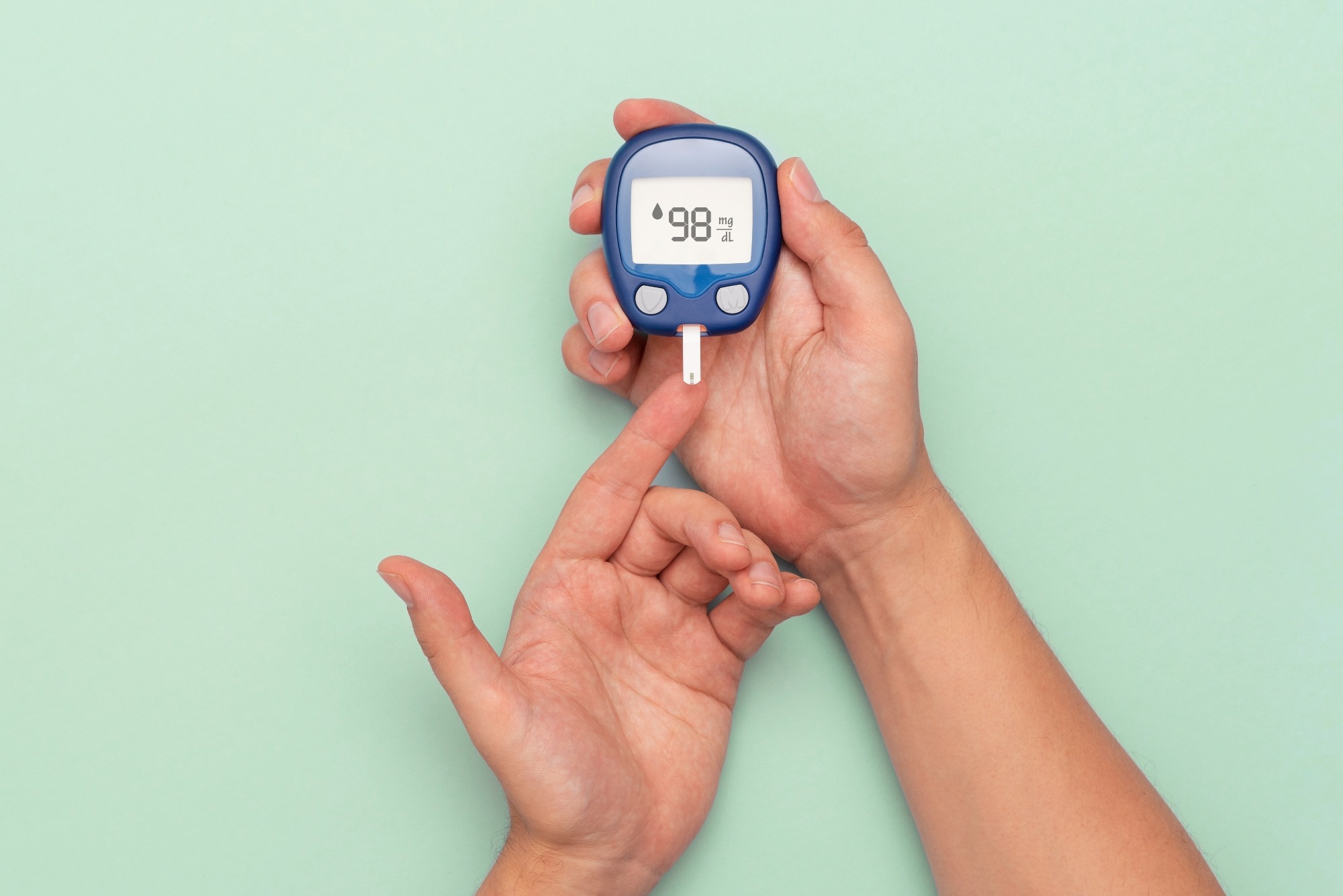The Longterm Outcomes Of Diabetes Remission And Its Impact On Health

In a recent study published in the journal Diabetologia , researchers examine the impact of diabetes remission on long-term health outcomes.
 Study: Impact of type 2 diabetes remission on long-term health outcomes: results from the Look AHEAD study . Image credit: Upcoming Studio/Shutterstock.com
Study: Impact of type 2 diabetes remission on long-term health outcomes: results from the Look AHEAD study . Image credit: Upcoming Studio/Shutterstock.com
What is diabetes remission?
Many patients believe that it is possible to achieve remission of type 2 diabetes. Although diabetes remission is often associated with bariatric surgery, lifestyle changes have also proven effective in achieving remission of prediabetes and diabetes.
Reversing diabetes after bariatric surgery can lead to chronic kidney disease (CKD) and cardiovascular disease (CVD). However, bariatric surgery results in greater normalization of glucose levels and a longer duration of remission than lifestyle changes.
To date, no studies have evaluated the impact of lifestyle-induced diabetes remission on long-term outcomes.
About the exam
In this study, researchers examined the impact of diabetes remission on the subsequent incidence of cardiovascular disease and chronic kidney disease. To this end, a post hoc observational analysis of participants in the Look AHEAD study was conducted.
Look AHEAD was a randomized, controlled trial comparing the effects of intensive lifestyle modification (ILM) with diabetes support and education (DSE) on long-term outcomes. The study randomized 5,145 overweight or obese adults ages 45 to 76 with type 2 diabetes.
The ILI involved weekly individual and group sessions for the first six months, followed by one individual session and two group sessions each month for the next six months. During the second and fourth years, study participants were contacted twice a month.
These participants were encouraged to attend monthly support sessions between the ages of 4 and 12 years. Behavioral strategies were used to achieve weight, behavior, physical activity, and diet goals.
DSE recipients were offered three annual group sessions focusing on social support, diet, and physical activity; however, they were not offered individual behavioral support.
All study participants attended the clinic at baseline, then annually for four years, and then every two years. At each visit, study staff assessed health status, weight, height, glycated hemoglobin ( HbA1c ), and medication use.
Diabetes remission was defined as a transition from meeting criteria for diabetes to criteria for prediabetes without the use of hypoglycemic drugs. The primary outcomes were the incidence of chronic kidney disease and cardiovascular disease.
Search results
A total of 4448 Look AHEAD study participants were included in this study after excluding data on insufficient follow-up, bariatric surgery, and initial remission. Approximately 12.7% of participants met the definition of remission at at least one follow-up visit. The prevalence of remission was 11.2% in the first year in the ILI group and decreased by 0.7 percentage points each year.
In contrast, in the DSE group, the prevalence of remission was approximately 2% per year. Remission status and duration were significantly associated with initial disease duration, medication use, fasting glucose, HbA1c , and systolic blood pressure. People who achieved remission took the drugs first.
People who were in remission at two or more follow-up visits were less likely to develop cardiovascular disease. Additionally, longer periods of remission were associated with shorter duration of diabetes.
Remission was associated with changes in risk factors and weight over four years. The average weight loss was 4 kilograms over one year and 2.2 kilograms over four years for those who were not in remission. In contrast, average weight loss was 12.3 kg and 9.6 kg at one and four years, respectively, for those in remission for at least four visits.
Participants who achieved remission had greater improvements in fitness and high-density lipoprotein (HDL) cholesterol levels at one and four years than participants without remission. However, people in remission had smaller reductions in low-density lipoprotein (LDL) cholesterol. Participants in remission had a 40% and 33% reduction in the incidence of cardiovascular disease and chronic kidney disease, respectively, compared to participants without remission.
In an analysis using the DSE group as the reference, patients with ILI in remission experienced a 23% reduction in the incidence of cardiovascular disease and a 40% reduction in the incidence of CKD. In analyzes stratified by randomization, remission was associated with a 68% reduction in the incidence of CKD but not CKD.ERC in the DSE group, whereas the LIL group was associated with a 34% reduction in the incidence of CKD but not of CKD.ERC. .
consequences
About 11% of study participants achieved remission in the first year, which dropped to 4% in the eighth year. Despite the short duration of remission, the incidence of cardiovascular disease and chronic kidney disease in remission was 40% and 33% lower, respectively, compared to participants without remission.
People with shorter diabetes duration, greater weight loss, or lower baseline HbA1c levels were more likely to achieve remission. The degree of risk reduction was greatest in patients with long-term remission.
Link to magazine:
- Gregg EV, Chen H, Banks MP et al . (2024). Impact of type 2 diabetes remission on long-term health outcomes: results from the Look AHEAD study. Doi diabetologia : 10.1007/s00125-023-06048-6






Tidak ada komentar untuk "The Longterm Outcomes Of Diabetes Remission And Its Impact On Health"
Posting Komentar